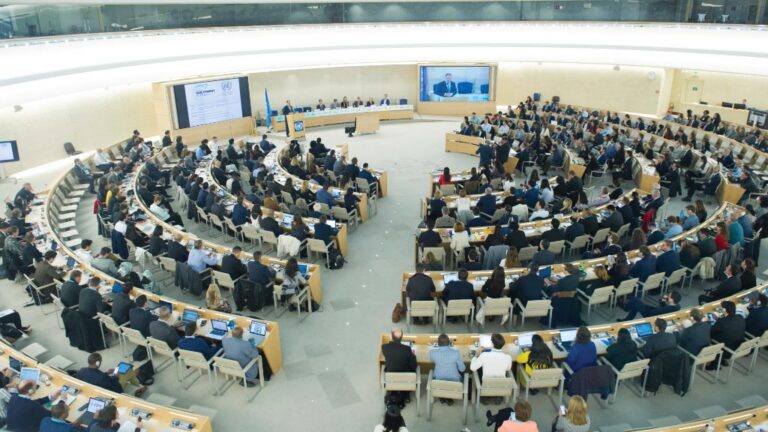The incorruptible digital system of economic transactions known as Blockchain has climbed up government priorities in the Global South. Today, blockchain technology strives to solve fundamental public issues.
Generally, blockchain technology is still associated with cryptocurrencies. However, the applications of this technology go well beyond alternative monetary systems. Target 1.4 of UN Sustainable Development Goal 1 aims to ensure that all people have access to ownership and control over land and other forms of property. Yet, land tenure is still one of the significant challenges for several countries in the Global South. Today, Blockchain technology promises several solutions to land ownership conundrum, especially for densely populated developing economies such as India.
The Indian Example
In 2018, several state governments in India started to use blockchain technology to supplement their land registration system. Similar to other developing countries, the reliability of existing land registration systems was an issue due to being vulnerable to malicious manipulation. Due to the lack of reliability, social conflicts for land ownership became common. The conflict may result in violence and death like the huge protests in several villages of West Bengal in 2017.
In an historical twist, blockchain is currently solving these critical issues in India's Haryana and Andhra Pradesh states. The technology improved the immutable transaction record history and transparency, thus allowing blockchain to inspire other states in India to introduce this innovation.
South-South Cooperation & Blockchain
India's use of blockchain is considered a milestone towards a full global integration of the technology. However, the country is not alone – it found good company in other Global South countries. Chile, Venezuela, Brazil and Indonesia have all increased their investments in blockchain. In 2017, the size of the market was $400 million. Not only did it increase to $500 million in 2018, it is expected to grow to $ 20 billion by the year 2024.
Several countries in the Global South are retaining control over a large portion of this market, and they will continue to do so in the future. The importance of blockchain for these countries is reflected by the mushrooming of several international initiatives among developing countries, commonly referred to as South-South cooperation. In August 2018, five major banking institutions from the emerging economies of Brazil, Russia, India, China and South Africa, aka the BRICS, signed a Memorandum of Understanding (MoU) on the development of distributed ledger technology (DLT). Today, the agreement allows these development banks to study the applications of innovative technologies in infrastructure finance and bank product optimization.
And if you thought that this was surprising, there is actually much more. To expand the potential of blockchain beyond the banking and financial sectors, other initiatives were put forward by other international actors.
In September 2018, the Blockchain Charity Foundation (BCF), a non-profit organization dedicated to blockchain-enabled philanthropy, and the United Nations Development Program (UNDP), announced a partnership. The collaboration seeks to support the application of blockchain technology for social good.
BCF will donate $ 1 million to UNDP in order to help close the UN Sustainable Development Goals (SDGs) funding gap. BCF is initiated by Binance, a blockchain ecosystem and the largest cryptocurrency exchange by trading volume. With the support of UNDP, BCF is committed to pursuing opportunities where blockchain technology can be used to provide innovative solutions to development challenges.
In the Global South, blockchain has the potential to change the lives of people in numerous ways, from establishing more trustworthy public registration systems to boosting substantial South-South international cooperation. Considering the current trends, blockchain is likely to find its applications in the Global South as much as in the Global North, but probably with higher transformative effects.


